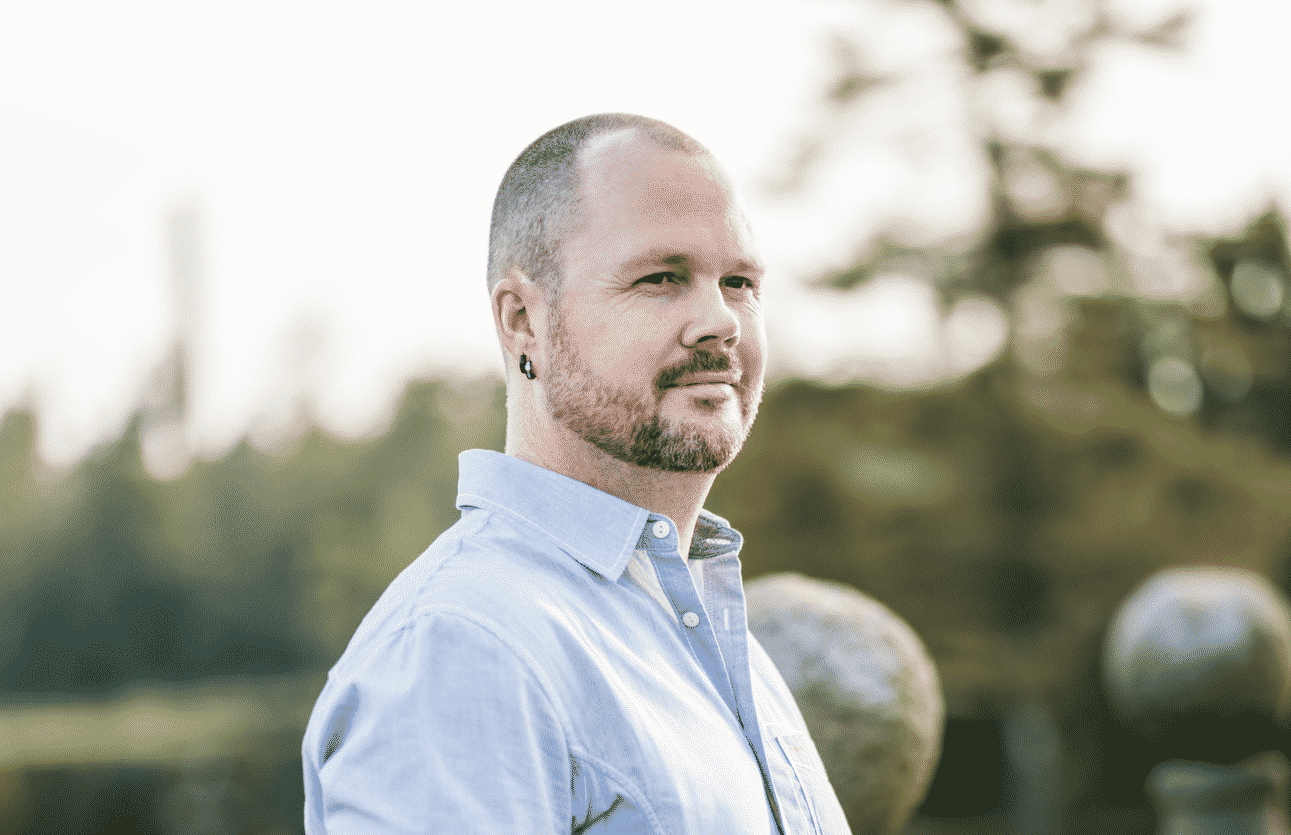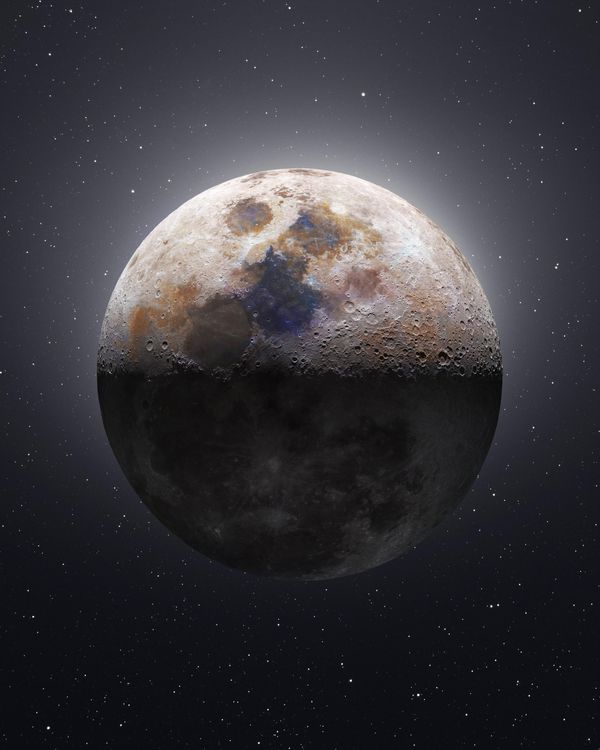Jordan Bates • • 9 min read
On the Tremendous Significance of Elon Musk and SpaceX Launching the Falcon Heavy Rocket
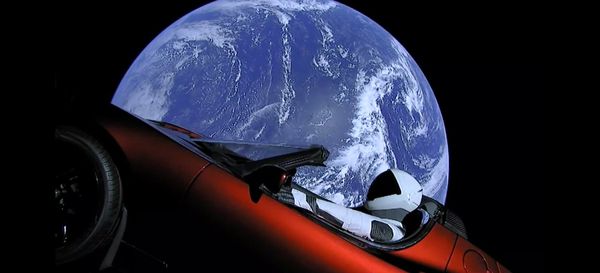
“It’s still trippin’ me out. I mean, I’m trippin’ balls here.”
— Actual quote from Elon Musk, 2/6/18
Elon Musk made history yesterday by launching the world’s most powerful operational rocket—SpaceX Falcon Heavy—and successfully landing the rocket’s side boosters back on Earth.
Oh, and they launched a cherry-red Tesla Roadster into space and it may float around the sun for the next billion years. More on that below.
The SpaceX Falcon Heavy footage is definitely one of the most awe-inspiring things I’ve ever seen. Absolutely historic, surreal, profound. Honestly I cried a bit—tears of astonishment and joy.
Watching this footage feels like watching the beginning of the era where humanity expands beyond Earth.
I recommend viewing it on the largest screen possible and watching from at least one minute prior to takeoff until the end of the video. Be sure to watch the side boosters land simultaneously on Earth and the footage of the Tesla Roadster floating in space.
(If you want to understand the tremendous significance of this launch prior to viewing, read the rest of this article first.)
The Tesla Roadster: A True ‘Space Oddity’
With characteristic playfulness, Musk loaded the SpaceX Falcon Heavy with an unusual payload for this test flight: a cherry-red Tesla Roadster with an astronaut dummy named “StarMan” in the front seat. The car has now been launched into a heliocentric orbit and if all goes well it will encircle the sun for millions of years.
If you’re a space geek, you’ll know how to answer this question in the future: Where were you on February 6, 2018. ?#SpaceX #FalconHeavyLaunch #Starman pic.twitter.com/5UesgEYsmd
— Marc Boucher (@MarcKBoucher) February 6, 2018
Musk said the car’s stereo would be playing ‘Space Oddity’ by David Bowie, though it would be inaudible due to the vacuum of space. The dash display on the car pronounces the message, “DON’T PANIC!,” a reference to The Hitchhiker’s Guide to the Galaxy by Douglas Adams, and the phrase, “Made on Earth by humans,” is printed on the car’s circuit board. Of the car idea, Musk previously said:
“I love the thought of a car drifting apparently endlessly through space and perhaps being discovered by an alien race millions of years in the future.”
Douglas Adams would be pretty stoked with this I reckon #SpaceX #Tesla #FalconHeavy #StarMan #HHG #DontForgetToBringATowel #DontPanic pic.twitter.com/OgVKRNTevB
— Dan (@dancapper) February 6, 2018
In the post-launch interview yesterday, Musk shared the following hilarious monologue reflecting on his feelings about the Tesla Roadster floating through space:
“Well, I think it looks so ridiculous and impossible. And you can tell it’s real because it looks so fake, honestly. We’d have way better CGI if it was fake. And, you know, the colors all look kind of weird in space—there’s no atmospheric occlusion. Everything looks too crisp. But we didn’t really test any of those materials for whether [they were] space-hardened, or whatever. It just has the same seats that a normal car has. It’s just literally a normal car in space, which, I kind of like the absurdity of that.
And if you look closely on the dashboard there’s a tiny Roadster with a tiny spaceman. Hot Wheels made a Hot Wheels Roadster, and a friend of mine suggested, “Hey, why don’t you put that Hot Wheels Roadster with a tiny spaceman in the car too?” And I’m like, “That would be cool. Sure.” So we did that. [laughs] I mean, it’s kind of silly and fun. But I think silly, fun things are important. And normally for a new rocket they’d launch a block of concrete or something like that. That’s so boring. I think the imagery of it is something that’s going to get people excited around the world. And it’s still trippin’ me out. I mean, I’m trippin’ balls here.”
I chuckled heartily while listening to this. I fucking love Elon Musk. What a badass human. You can watch an ongoing live feed of StarMan soaring through space here:
The Tremendous Significance of The SpaceX Falcon Heavy Launch
All right, so the floating Tesla Roadster is ridiculously cool, but this launch was about a lot more than a space-bound automobile. The Earth-departure of SpaceX Falcon Heavy was truly significant and historic for a number of reasons:
-
- The Falcon Heavy is the most advanced and most powerful operational rocket on Earth. It’s the second most powerful rocket in history next to the Saturn V. Musk has stated that if they wanted to, SpaceX could modify the Falcon Heavy, adding additional boosters, making it as powerful as the Saturn V, but this is unnecessary at this time. It can launch twice as much payload as any other rocket in the world.
-
- The SpaceX Falcon Heavy is capable of carrying significant payloads to Mars, or even all the way to Pluto, no stop needed.
- Landing the SpaceX Falcon Heavy’s side boosters back on Earth in a synchronized touchdown is a huge win for the future of humanity’s endeavors in space. SpaceX first achieved the feat of recovering a single rocket booster in late 2015, but their ambitious goal is to continuously improve the technology until it’s possible to facilitate full and rapid reusability of space launch vehicles. The successful landing of SpaceX Falcon Heavy’s side boosters was a huge step forward in this area. Of the synchronized booster landing, Musk said:
“That was epic. I think that’s probably the most exciting thing I’ve ever seen, literally ever…
Seeing the two boosters land synchronized, really just like the simulation—it makes you think, there really could be quite a scaleable approach. You could imagine large numbers of those just coming in, landing, taking off, landing, doing many flights per day…So I think we can really do this a lot, and keep advancing the technology to achieve full and rapid reusability, which would have a profound effect on the future.”
- The launch will inspire people, companies, and countries worldwide to dream of greater possibilities. On this point, Musk said:
“It’s going to open up a sense of possibility. I think it’s going to encourage other companies and countries to say, ‘Hey, if SpaceX, which is a commercial company, can do this… then [we] can do it too.’ So I think it’s going to encourage other countries and companies to raise their sights and say, ‘Hey, we can do bigger and better.’
We want a new space race. Races are exciting.“
- Perhaps most important: The successful launch of Falcon Heavy further solidified the viability of much of the technology that SpaceX will implement in their forthcoming ‘Big Fucking Rocket‘ (“BFR” for short; not clear if this is the official name)—the spacecraft they intend to use to begin colonizing Mars as early as 2022. Musk said:
“It gives me a lot of faith for our next architecture—the sort of interplanetary spaceship. We have different names for it, but BFR is kind of the codename. It gives me confidence that BFR is really quite workable. But I was actually looking at the side boosters, and they’re pretty big—you know, 16 stories tall, 60 foot leg span. But we need to be way bigger than that. So I think it’s given me a lot of confidence that we can make the BFR design work.. I have tremendous confidence obviously in the SpaceX team.”
SpaceX’s endgame, as it says on their website, is to “revolutionize space technology, with the ultimate goal of enabling people to live on other planets.” Their site also says:
“SpaceX was founded under the belief that a future where humanity is out exploring the stars is fundamentally more exciting than one where we are not.”
I agree with them there. A reality in which humans are exploring and living beyond Earth is just fucking 1,000,000x cooler than one where we’re not.
However, that’s far from the only reason to colonize Mars and other planets.
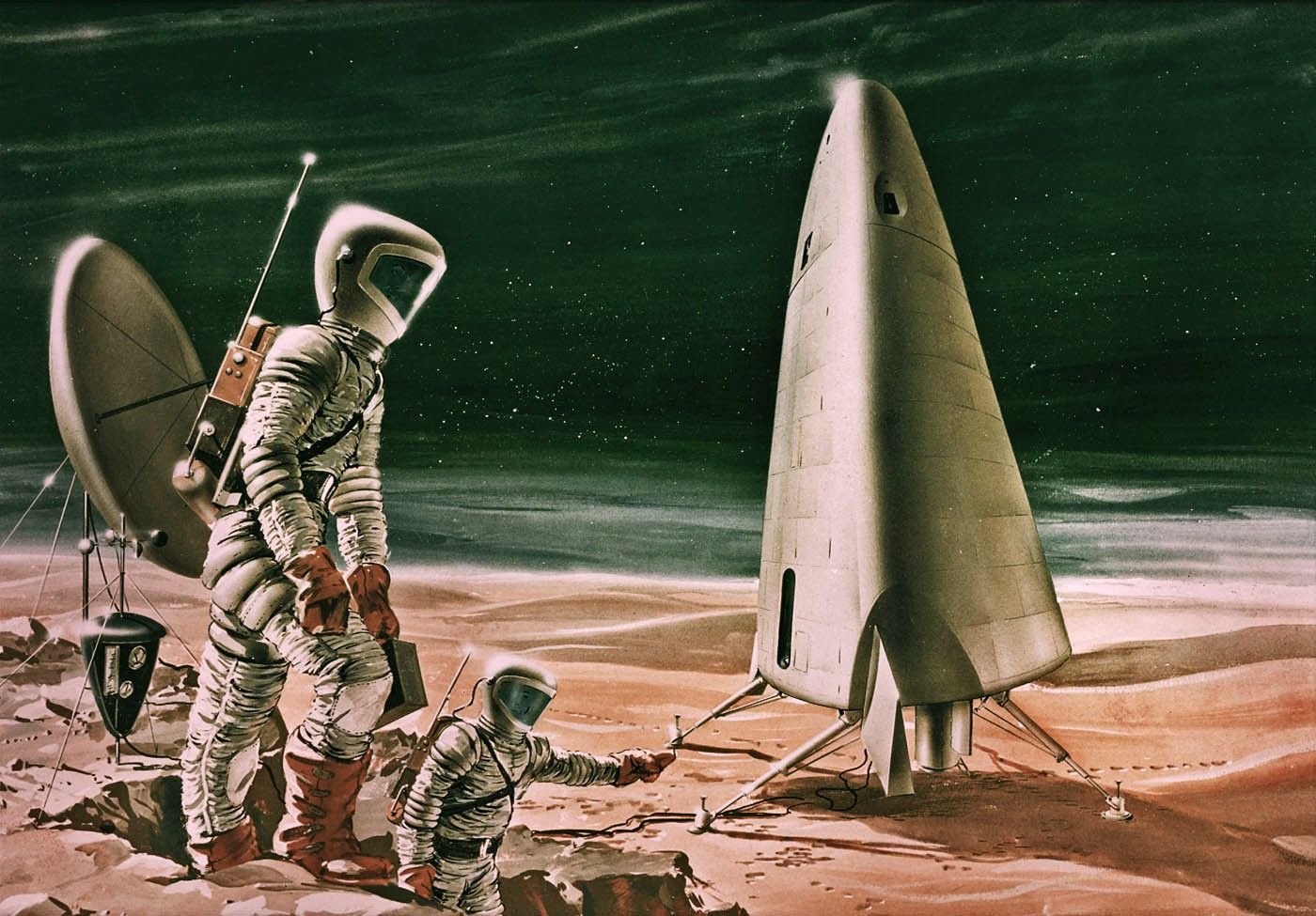
First and foremost, having all humans packed onto a single planet is ultimately a recipe for disaster.
It is inevitable that eventually a natural catastrophe or (more likely) a manmade catastrophe will cause an extinction-level event, wiping out all (post-)human beings and most or all life on Earth. At the latest, this will happen in about 5 billion years when the sun enters its red giant phase and either engulfs the Earth or turns the whole planet into a post-apocalyptic desert.
However, it’s vastly more likely that global catastrophic events will occur much sooner than this. There are natural catastrophic possibilities such as asteroid impacts or supervolcano eruptions, but by far the most worrisome existential risks are manmade risks. Things like nuclear warheads, bio-engineered super-plagues, nanotechnology weapons, poorly designed artificial intelligence systems, and mounting ecological crises catalyzed by unsustainable human activity unfortunately pose a grave threat to our continued well-being on this planet. I made a rap album all about this, if you’re curious.
At some point humanity was going to have to develop high technology in order to avert natural catastrophic risks and leave Earth before the sun becomes a red giant, or else we surely would have gone extinct on Earth. And well, now we have this high technology, and it offers tremendous promise in some ways, but it also comes with hellish destructive power.
Now that the genie is out of the bottle, we need to start taking precautions. Vinay Gupta suggests we ought to do all the research and development of the most dangerous technologies out of Earth’s orbit, on the moon or Mars or beyond. Daniel Schmachtenberger suggests we need to transition to a post-capitalist economy, because capitalism incentivizes the rapid development of dangerous technologies without proper prudence and precautions. Such proposals are fascinating and prescient, and we need more of them.
One thing that many smart people thinking about existential risks agree on is that it’s a good idea to start expanding human civilization to other planets, to dramatically increase our species’ resiliency in the face of disasters. On this topic, Elon Musk has said:
“I think there is a strong humanitarian argument for making life multi-planetary, in order to safeguard the existence of humanity in the event that something catastrophic were to happen, in which case being poor or having a disease would be irrelevant, because humanity would be extinct. It would be like, ‘Good news, the problems of poverty and disease have been solved, but the bad news is there aren’t any humans left.’
[…]
Not everyone loves humanity. Either explicitly or implicitly, some people seem to think that humans are a blight on the Earth’s surface. They say things like, ‘Nature is so wonderful; things are always better in the countryside where there are no people around.’ They imply that humanity and civilization are less good than their absence. But I’m not in that school. I think we have a duty to maintain the light of consciousness, to make sure it continues into the future.”
This is the real, ultimate reason why the Falcon Heavy launch success is colossally important: it marks another serious milestone on SpaceX’s path to making humanity multi-planetary and much less likely to go extinct.
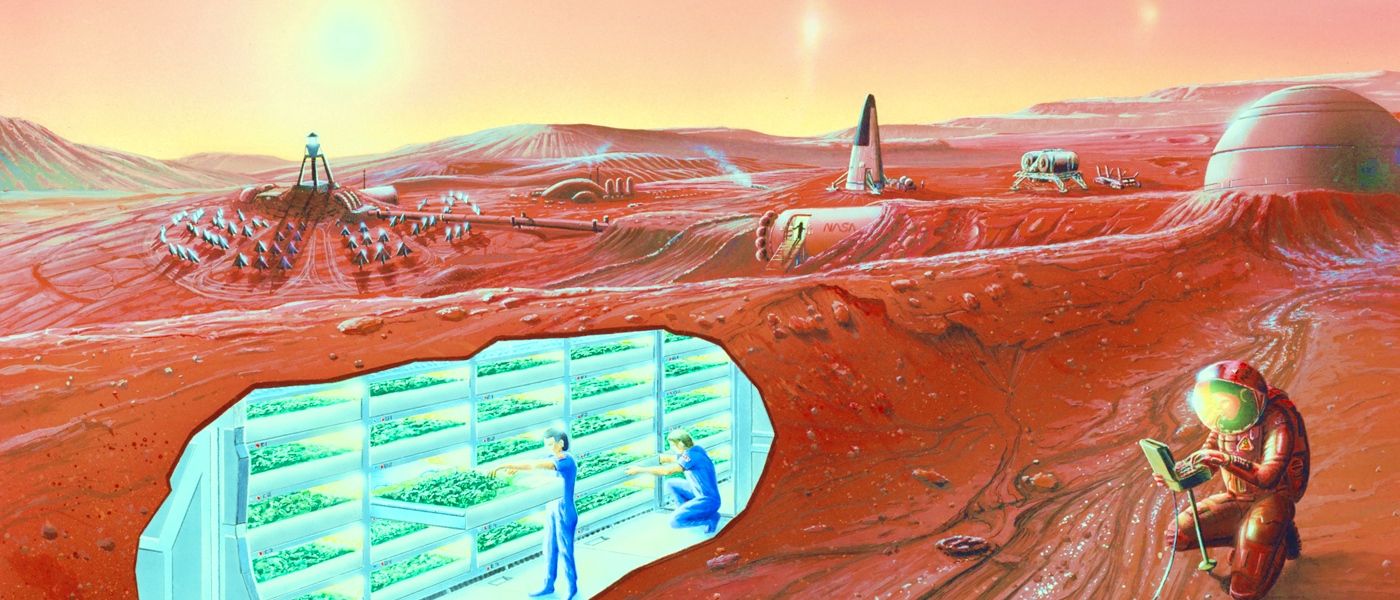
There are other good reasons to colonize Mars as well:
- We could eventually create earth-like habitats in space and populate them with other earthly lifeforms, thereby increasing the resilience of many earthly species, not just humans.
- A Mars colony containing people from all over the world living in peace could serve as an international beacon of unified human ingenuity, increasing the much-needed understanding that we are all human beings, all earthlings, and that we are in this together, with intertwined fates.
- A second civilization on Mars, like space exploration in general, is just damn inspiring. It demonstrates the heights to which humanity can rise when we stop fighting amongst ourselves and focus on creating amazing things.
- In the process of colonizing Mars, we will almost surely develop new forms of (utopian) technology, governance, collective intelligence, and other innovations that can then be applied on Earth for the benefit of all.
When you really take a step back and look at how precarious our present situation is on Earth and how we’re not going to be able to put the genie of dangerous high technology back in the bottle, colonizing Mars begins to feel like a no-brainer.
Of course, this in no way means that we should devalue Earth. To the contrary, we should cherish the pale blue dot more than ever, take all possible precautions to preserve the biosphere, and do whatever possible to level up our collective wisdom and decision-making so as to avoid disaster. However, we have to be honest that this might not be enough, and that this reality thus necessitates the additional precaution of becoming a multi-planetary species.
Conclusion
“It seems surreal to me… It taught me… crazy things can come true.”
— Elon Musk, 2/6/18
Elon Musk correctly realizes that space travel is inspiring as hell. Seeing the footage from yesterday’s monumental launch made my brain buzz with electricity and brought tears to my eyes. Imagining humans soaring through and exploring the Great Beyond is just fucking awesome and makes me believe in our species’ potential for greatness.
I deeply hope that this new era of space adventuring has a unifying effect on humanity, awakening more people to the reality that we were all born in the same place: a fragile, wondrous orb called Earth.
Fighting amongst ourselves is so last millennium. It’s high time we got with the program and realized what marvelous things we can accomplish when we cease in-fighting and start collaborating and creating, with a vision of a better future for all sentient life.
We are the humans of Earth.
We can fly.
We’ve got a planet to save.
And a cosmos to explore.
Let’s make it happen.
If you appreciated this article, you’ll probably also love these:
50 Things Elon Musk Said Better Than Anyone Else Ever Has or Will
Why Humanity Must Become a Multi-Planetary Species
Tim Urban Talks Virtual Reality, Elon Musk, Free Speech, Cryonics, and More

Jordan Bates
Jordan Bates is a lover of God, father, leadership coach, heart healer, writer, artist, and long-time co-creator of HighExistence. — www.jordanbates.life






